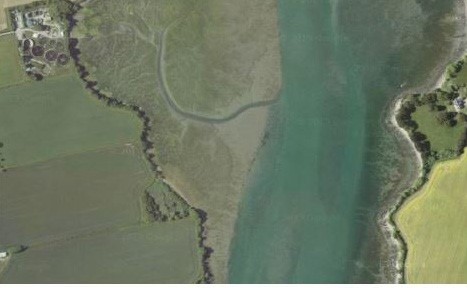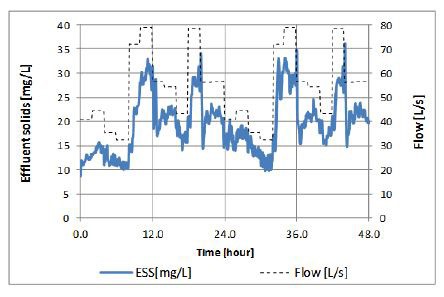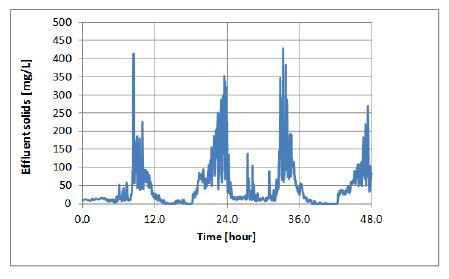Examining Secondary Clarifier Performance After Sea Water Incursion
A number of Sewage Treatment Works (STW’s) are located in Estuaries just off coastal waters, such as that shown in Figure 1. There is significant site evidence to suggest that a sea water incursion degrades clarifier performance – but the mechanism for this is not clearly understood.
As part of a design assessment, MMI undertook Computational Fluid Dynamic (CFD) modelling to consider the dynamic performance of a secondary clarifier during storm flows with sea water incursion.
Figure 1: The Source of Sea Water at the Works is a Result of Seawater Ingress into the Sewer System
Our Approach
To investigate the potential for optimisation, different influent arrangements should be assessed, e.g. McKinney baffles or Energy Dissipating Influents, to determine whether enhancements to the tank will provide any protection from the blanket spilling over the effluent weir. In this particular assessment, a calculation for the diurnal flow without the salt incursion was undertaken.
This was subsequently followed by a calculation with the same flow, but with sea water included, to demonstrate the effect of the sea water incursion.
Results
Figure 2 shows the effect of the diurnal flow over a 48 hour period on the effluent suspended solids concentration, where the ESS concentration briefly exceeds 30 mg/l.
Figure 2: Effect of Storm Flow on the ESS Concentration
Overall, the tank shows good performance. However, with saline incursion, there is significant solids carry over for the same diurnal flow, with the solids concentration peaking at over 350 mg/l on three occasions during the 48 hour cycle, as shown by Figure 3.
Figure 3: Effect of Seawater Incursion on the Effluent Suspended Solids Concentration
This study confirms that a sea water incursion can significantly degrade secondary clarifier performance at coastal STWs.
Value Added
When evaluating clarifiers, MMI can assess dynamic events, enabling clients to receive the most appropriate form of tank optimisation.
For more information surrounding our CFD modelling expertise in the Water Industry, please contact us on 0117 960 2212 (Bristol) or email us.


